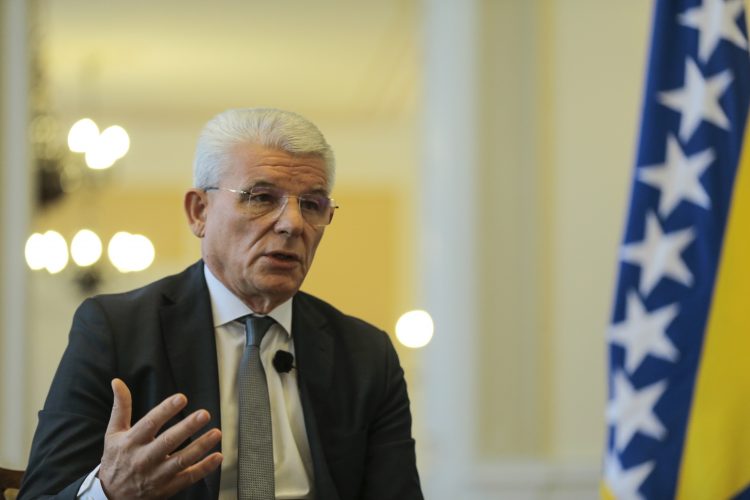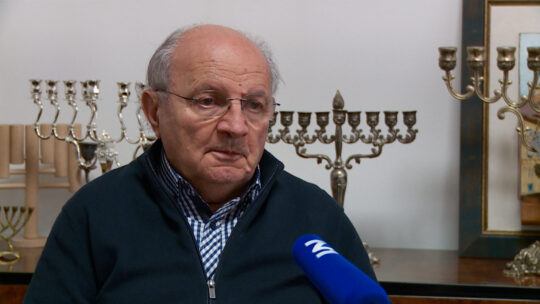
Sefik Dzaferovic, the member of Bosnia's three-member Presidency, told Turkish state broadcaster TRT that Ukraine is a victim of open military aggression. Asked if the conflict in Ukraine could spill onto the Balkans, he said it is hard to expect such scenario but that a certain threat does exist.
“The Balkans is not as close to Russia as Ukraine is, so it is very difficult to expect such scenario. There is a NATO area between Russia and us. But, although Russia is not leaning on the Western Balkans, a certain threat does exist,” said the Bosniak Presidency member.
He also warned that Serb Presidency member Milorad Dodik “only six days after his meeting with (Russian President Vladimir) Putin in Moscow, has launched an attack on the constitutional order of Bosnia and Herzegovina.
“The (National) Assembly of Republika Srpska adopted conclusions that breach the Dayton Agreement and 27 years of its implementation,” said Dzaferovic, referring to the peace deal that ended the 1992-95 Bosnian war and set up the country's constitutional order.
“Dodik would like to take us back to 1995 when everyone in Bosnia and Herzegovina watched each other through the scope. That's dangerous and must be stopped. Primarily the NATO and EU have a responsibility to do that,” he added.
He recalled that the Bosniak and Croat leaders in Bosnia and Herzegovina condemned the aggression on Ukraine and that only Dodik tried to obstruct Bosnia's joining the condemnation which he did not succeed.
According to him, Russia's activities in Ukraine “revive the dreams about the Greater Serbia” and the many see Russia as a force that would support the secession of a part of Bosnia and Herzegovina, and its merging with Serbia.
“That's why we heard a message from NATO that Bosnia and Herzegovina is under a threat. And that's why we need NATO's support, and we will fight for Bosnia and Herzegovina until the end, in any case,” Dzaferovic stressed.
Asked if a third world war might emerge in the Eastern Europe, just like the WWI and WWII did, he replied the international community is not concerned without a reason.
“Historical experience shows that the conflicts in the Balkans and further, in Eastern Europe, have the potential to spread rapidly. Historical experience shows that indulgence in Munich in 1938 led to an escalation of Nazi aggression”, said the Presidency member, warning that the “passivity of the international community” in the early 1990s in the Balkans led to the spread of the war.
“Only with the intervention of NATO, the wars in BiH and Kosovo were stopped. If NATO is passive, conflict in Ukraine could spread, and only if NATO is firm and determined, no one will be interested in spreading the conflict, not even in BiH and the Western Balkans,” he added.
Speaking of Bosnia and Herzegovina's potential future in NATO and EU, Dzaferovic said he sees the country as a member state of the two communities.
“I am positive that Bosnia and Herzegovina would solve many of its problems if it became a member state of the EU and NATO. That's why there is resistance to the Euro-Atlantic integration among those who reject to accept Bosnia and Herzegovina,” he said.
As for Turkey's role in solving the long-term crisis in Bosnia, the Presidency member said that Turkey plays a stabilising rolein Bosnia and Herzegovina, supporting its EU and NATO paths.
“President (Recep Tayyip) Erdogan gives strong support to Bosnia and Herzegovina, supports all its peoples and expects from everyone to respect integral Bosnia and Herzegovina,” he said.





Kakvo je tvoje mišljenje o ovome?
Budi prvi koji će ostaviti komentar!